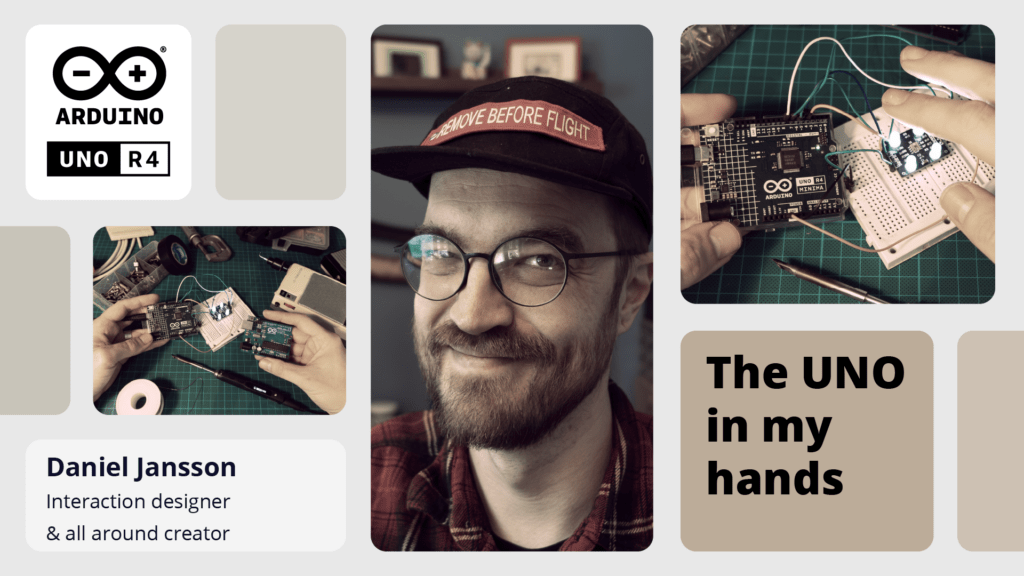UNO R4 Stars: Meet Daniel Jansson
The launch of the Arduino UNO R4 marks a huge leap forward for our community. For us, it’s also the chance to celebrate the people who bring our ecosystem to life with their bright ideas, radiant enthusiasm, and shining insight.
That is how the UNO R4 Stars blog post series began: to highlight makers who have not only created amazing projects with Arduino, but who are giving back to the community by sharing as they go and helping others make anything they wish.
We invite you to discover each profile, hoping you might find a North Star to navigate around an expanding galaxy or venture into completely new universes.

Daniel Jansson first came into contact with Arduino in 2011, while at Umeå Institute of Design for his master’s degree in interaction design. The experience was empowering to the point of being weird: “It was like, now I can create things which only engineers and developers could make before. It felt like I was doing things that I should just not be able to do.”
Curious by nature, he instantly realized that – while the technology could have helped him in his studies – it was a lot more fun to create quirky interactive objects that made people smile. So he kept going, experimenting with various Arduino boards to create big and small devices with connectivity, sound, lights and interactivity.
“There are few things I enjoy more than taking disparate subjects and joining them into new creations, oftentimes with Arduino acting as the glue to help things sense the world around them, or interact in new and unusual ways,” he says.
A great example of this is his favorite maker project: the YouTube Subscriber Levelometer, which repurposes a device once used to measure the level of liquid in tanks using pressure. Adding his signature blend of “physical interaction, programming, sound, connectivity and a healthy dose of humor,” Jansson built a phygital system that keeps track of his key influencer stats. He integrated speech synthesis by combining an Arduino Nano with the Talkie library, which was based on work done by Texas Instruments in the 1980s, and programmed everything via the Arduino IDE.
As a long-time Arduino user, Jansson was excited to try the UNO R4: “It extends the potential for new projects to places where I did not imagine the UNO platform could go. It really feels like a leap forward, without compromising on the vast library of projects created over the last 11 years since the launch of the UNO R3.”
We asked Jansson, “What’s your favorite part of the UNO R4?”
- The 12-bit DAC to generate higher fidelity sound, opening up huge possibilities for musical projects – even building entirely new instruments.
- The native HID capabilities, which make creating native USB-MIDI super easy.
- Compatibility with the UNO R3, allowing users to revisit and update old projects.
Beyond any specific product, it’s the global community that makes Arduino unique: “It doesn’t matter where in the world you are, you can always find someone who has run into the same challenges as you have, and find help to overcome them to make your projects come true. The wealth of knowledge makes Arduino a democratic hardware platform in ways we have never seen before.”
The value of shared knowledge and experiences clearly resonates with Jansson, who hopes to encourage others to learn, enjoy, and broaden their mind with his projects. To keep up with his many fun and interesting ideas – bound to bring a smile to your face – follow his Instagram account or subscribe to his “Switch & Lever” YouTube channel.